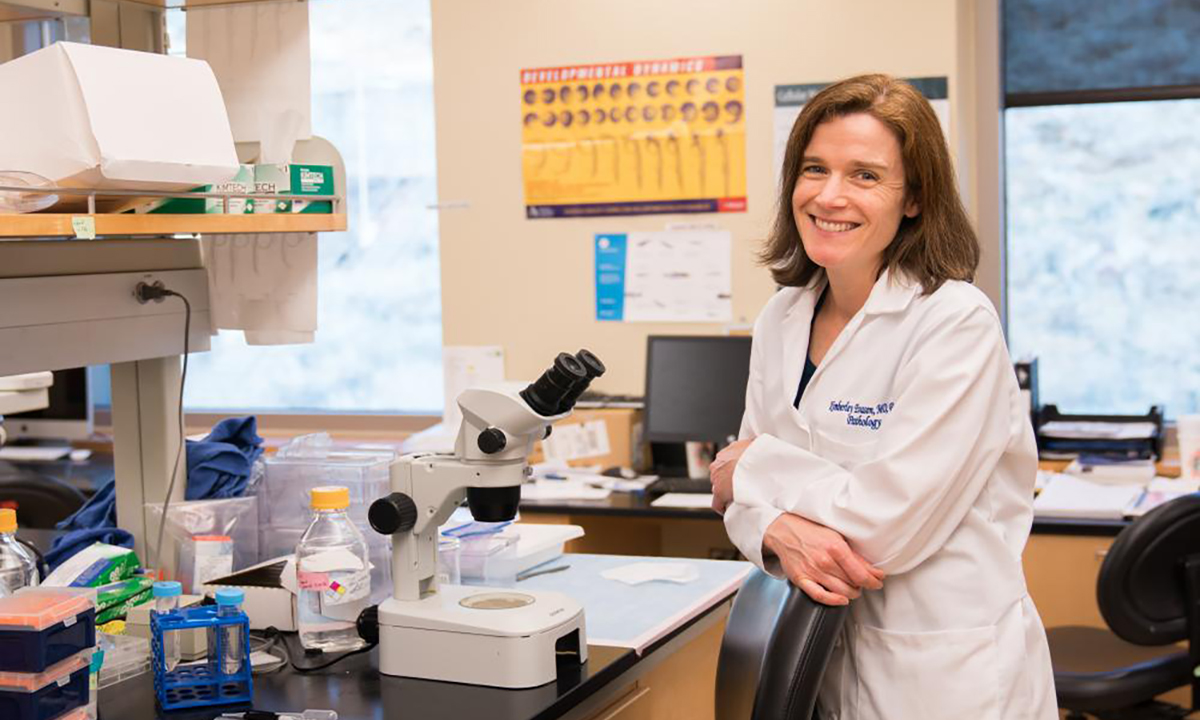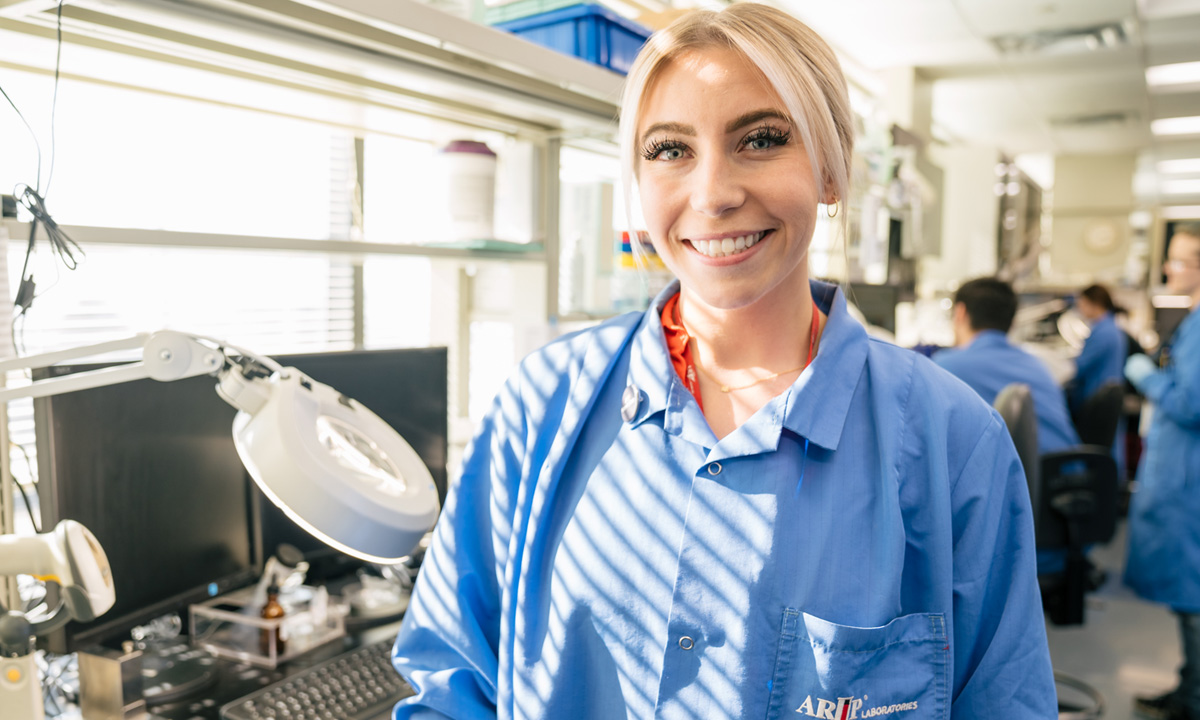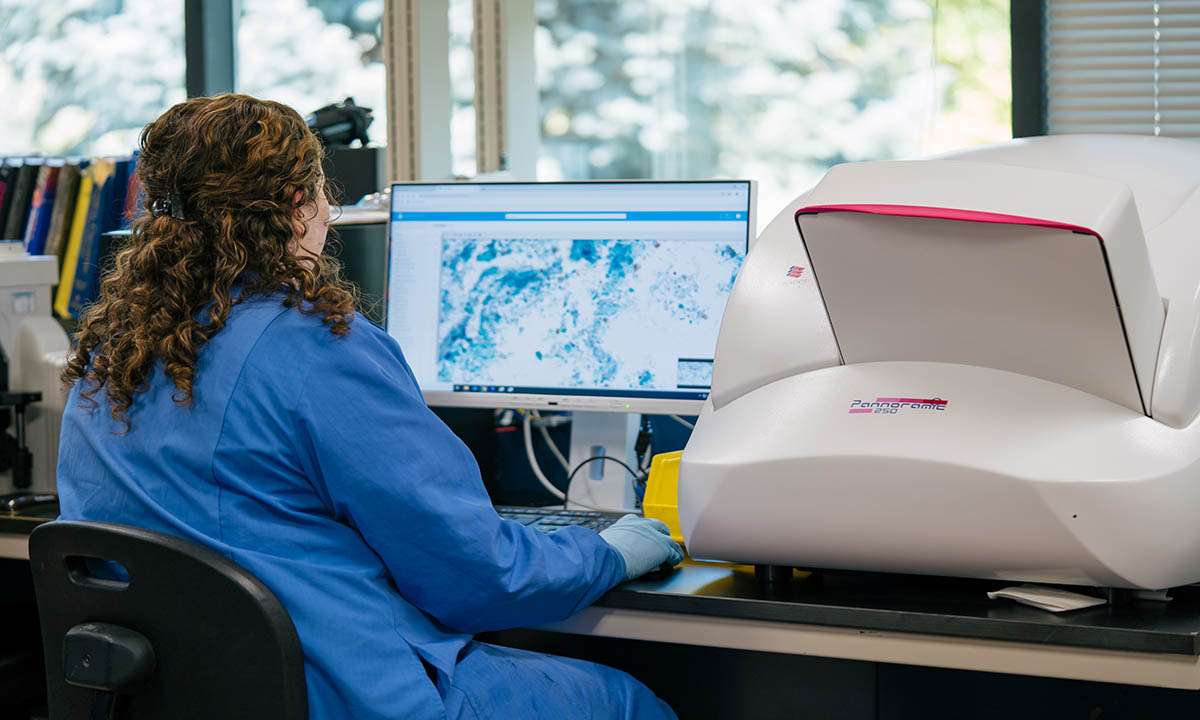Clinical laboratory leaders met with Vice President Mike Pence and members of the government’s Coronavirus Task Force to discuss issues related to COVID-19 testing and response.
AnalyticsDx™ Comprehensive is a new tool that arranges lab testing data into a visual dashboard that allows you to see your organization’s trends and provides customized recommendations.
ARUP Laboratories announced today that the Food and Drug Administration (FDA) has filed ARUP’s premarket approval application (PMA) for an AAV5 total antibody assay.
In collaboration with ARUP Laboratories’ genomic scientists and bioinformatitians, University of Utah Health announced a project with the goal of accurately detecting genetic disorders among newborns.
Kimberley Evason, MD, PhD, and Gregory Ducker, PhD, are two of only 12 scientists nationwide to receive the 2020 Damon-Runyon-Rachleff Innovation Award for their liver cancer research.
For the second year in a row, ARUP was honored with a Best Companies to Work for Award for 2019.
Dr. John M. Matsen, III, one of the founders of ARUP Laboratories, Inc., passed away on November 9, 2019. He was 86 years old.
The Salt Lake Tribune has awarded ARUP Laboratories a Top Workplaces 2019 honor. ARUP is one of 100 Utah companies to receive the award.
As more health systems merge, Brian Jackson, MD, MS, feels hospital leadership needs a deeper understanding of clinical and operational relationships.
Members of the ARUP Consult Editorial Board include (from the left): Lisa Johnson, PhD; Jordon March, MD; Tracy George, MD; Brian Jackson, MD, MS; Kamisha Johnson-Davis,
ARUP Laboratories and Techcyte, a leading developer of AI-based image analysis solutions for the diagnostics industry, have developed the world’s first AI-augmented ova and parasite detection tool.
The bacteria that causes Legionnaires’ disease (Legionella pneumophila) often grows in air conditioners, as well as hot tubs, hot water tanks, large plumbing systems, and decorative fountains.





























